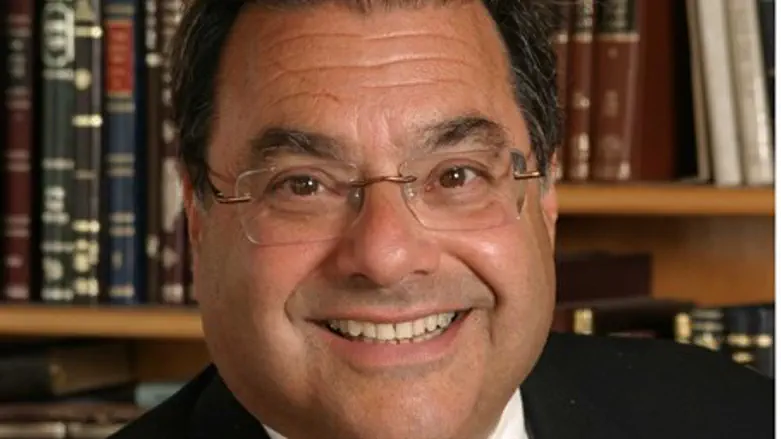
As the tension over coalition talks heats up ahead of a Wednesday deadline, Rabbi Shlomo Riskin, chief rabbi of Efrat in Judea's Gush Etzion, called on the Jewish Home party to emphasize two topics in negotiations - women being refused a get(Jewish writ of divorce), and converts seeking to become Jews.
"It is inconceivable that the reform that began among the rabbinic courts and the appointment of dayanim (religious judges - ed.) - through which for the first time there are women taking part in selecting the dayanim - be stopped," said the rabbi.
Rabbi Riskin claimed that "among the veteran dayanim, there aren't enough of them with an approach that sees the importance and treatment of the distress of women, and many women are trapped in marriages that they don't want to be in. When a new dayan is appointed, the central issue that needs to be before the committee is the position of women as having equal rights."
While the rabbi focused solely on women being refused a get and thereby remaining trapped in the legal marital status under Jewish law, it should be noted that the issue is not a one-way street. A study of the Chief Rabbinate of Israel in 2007 found that in the prior two years 180 women were refused Jewish divorces by their husbands, but a full 185 men were refused a get from their wives.
Speaking about governmental moves on the docket that he hopes can be blocked, Rabbi Riskin warned, "transferring the committee to appoint dayanim from the Religious Affairs Ministry to the Justice Ministry is liable to harm in the most serious manner this very important issue."
Turning his attention to the controversial conversion law, the rabbi said, "the reform in conversion is also an essential issue for Israeli society and the Jewish people, and it is important that we know to act so as to solve the problems before they break out."
"We need to deal more with the various populations in the society not just when there are riots and streets are overturned," he added. "The reform in conversion comes to provide a response for hundreds of thousands of immigrants from the (former) Soviet Union, who are full and equal partners in Israeli society but today cannot complete the conversion process."
"There were already important decisions in the previous government, and we can't cancel these decisions that give hope to so many. We can't cancel a large and important population, and think that if we ignore the topic it will solve itself. This is a social and halakhic (Jewish legal) problem that we need to take in hand, and bring the solution in time," said the rabbi.
In conclusion, Rabbi Riskin called on "the prime minister and minister Naftali Bennett to pay attention to these issues, and not to retreat from the progress that began."
Rabbi Riskin did not mention the haredi partners of the coalition who have already signed agreements with Likud, which Bennett's Jewish Home has yet to do. Those parties, Shas and United Torah Judaism, have indicated opposition to the conversion law out of concerns it may allow conversions that are not compatible with Jewish law, thereby creating confusion as to who is halakhically Jewish.